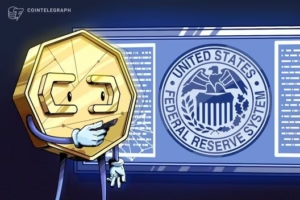The U.S. government is on the verge of establishing a Strategic Bitcoin Reserve, with an estimated capacity of only 88,000 BTC available for repurposing. This figure comes from a recent analysis by Alex Thorn, the head of research at Galaxy Research.
As of early March 2025, the government reportedly holds about 198,000 BTC. However, a significant portion, specifically 112,000 BTC, is earmarked for return to Bitfinex following a previous seizure. This limitation means that only 43% of the U.S. government’s current Bitcoin assets can be integrated into the new reserve.
Thorn’s analysis highlights an important distinction between seized and forfeited Bitcoins. The White House, represented by AI and Crypto Czar David Sacks, stated that the initial Bitcoin contributions for this reserve would come exclusively from seized digital assets, ensuring that taxpayers are not burdened with additional costs. However, the practicality of this plan is marred by Thorn’s assertion that only Bitcoin classified as forfeited may qualify for use in the reserve. This further narrows the actual amount available for the program.
Moreover, Bitcoin comprises an impressive 97.7% of the government’s digital assets. If wrapped Bitcoin (WBTC) is included in the calculation, that figure climbs to about 98%. This information indicates the government’s heavy reliance on Bitcoin and suggests potential shifts in regulatory approaches as Bitcoin’s influence on the financial landscape continues to grow.
The announcement has garnered widespread acclaim within the cryptocurrency community. Notably, Coinbase CEO Brian Armstrong referred to this strategic move as a “historic moment for Bitcoin and crypto.” Industry leaders believe that this initiative may exert pressure on other G20 nations to consider similar Bitcoin reserves.
Additional insights from Galaxy Digital’s Ryan Rasmussen delve into the implications of the U.S. establishing such a reserve. He argues that this strategy significantly mitigates fears of the government flooding the market with Bitcoin sell-offs, which could undermine its value. Instead, this regulatory shift could enhance institutional confidence and drive further adoption. Investment firms, wealth managers, and even sovereign nations may no longer have valid reasons to hesitate in acquiring or facilitating Bitcoin investments.
The prevailing sentiment is that this move fundamentally alters the perception of Bitcoin within various financial sectors, potentially setting a precedent for global policy changes.
Currently, Bitcoin is trading at approximately $87,800, and as the upcoming White House Crypto Summit approaches, expectations heighten regarding discussions on Bitcoin’s future role in the financial ecosystem. Market analysts predict that outcomes from this summit could significantly impact Bitcoin’s market trajectory.


